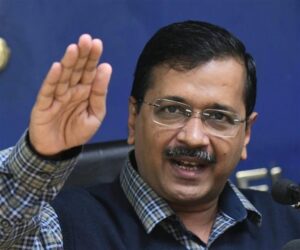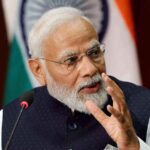In a recent development, the Delhi High Court has declined to provide interim protection to Delhi Chief Minister Arvind Kejriwal regarding Enforcement Directorate summonses related to the Delhi excise policy case. The court’s decision, delivered by a bench of Justices Suresh Kumar Kait and Manoj Jain, came after hearing arguments from both sides. Kejriwal had filed a fresh plea seeking assurance from the Enforcement Directorate that no coercive action would be taken against him if he complied with the summonses.
Kejriwal’s plea emphasized the need for assurance from the Enforcement Directorate to avoid any potential arrest if he were to comply with the multiple summonses issued to him. This plea was filed in response to the ninth summons, directing him to appear before the probe agency on Thursday.
The Aam Aadmi Party (AAP) chief has consistently refused to appear before the Enforcement Directorate, labeling the summonses as illegal. His stance underscores the intensity of the legal battle he faces and the implications it holds for his political career and the broader political landscape.
Arvind Kejriwal’s refusal to comply with the summonses signals a deepening confrontation between his administration and central investigative agencies. This clash not only reflects the political tensions prevailing in the national capital but also raises questions about the independence of state governments vis-à-vis federal investigative bodies.
The Delhi High Court’s decision not to grant interim protection suggests that Kejriwal’s legal challenges are far from over. It underscores the court’s inclination to proceed with the matter and underscores the seriousness of the allegations against the Chief Minister.
Kejriwal’s legal battles have significant ramifications for governance and democracy in India. They highlight the complex interplay between federalism, political power dynamics, and the rule of law. The outcome of these legal proceedings will not only shape Kejriwal’s political future but also influence the broader discourse on accountability, transparency, and the role of state governments in the country’s federal structure.
As the legal saga unfolds, all eyes will be on the Delhi High Court and the Enforcement Directorate, as their decisions will have far-reaching implications for the political landscape of Delhi and beyond. Kejriwal’s continued defiance and the legal battles ahead signal a protracted and potentially turbulent journey for the Delhi Chief Minister, with ramifications that extend well beyond his personal political fortunes.
ALSO READ : ONE NATION, ONE ELECTION: KOVIND PANEL HIGHLIGHTS










